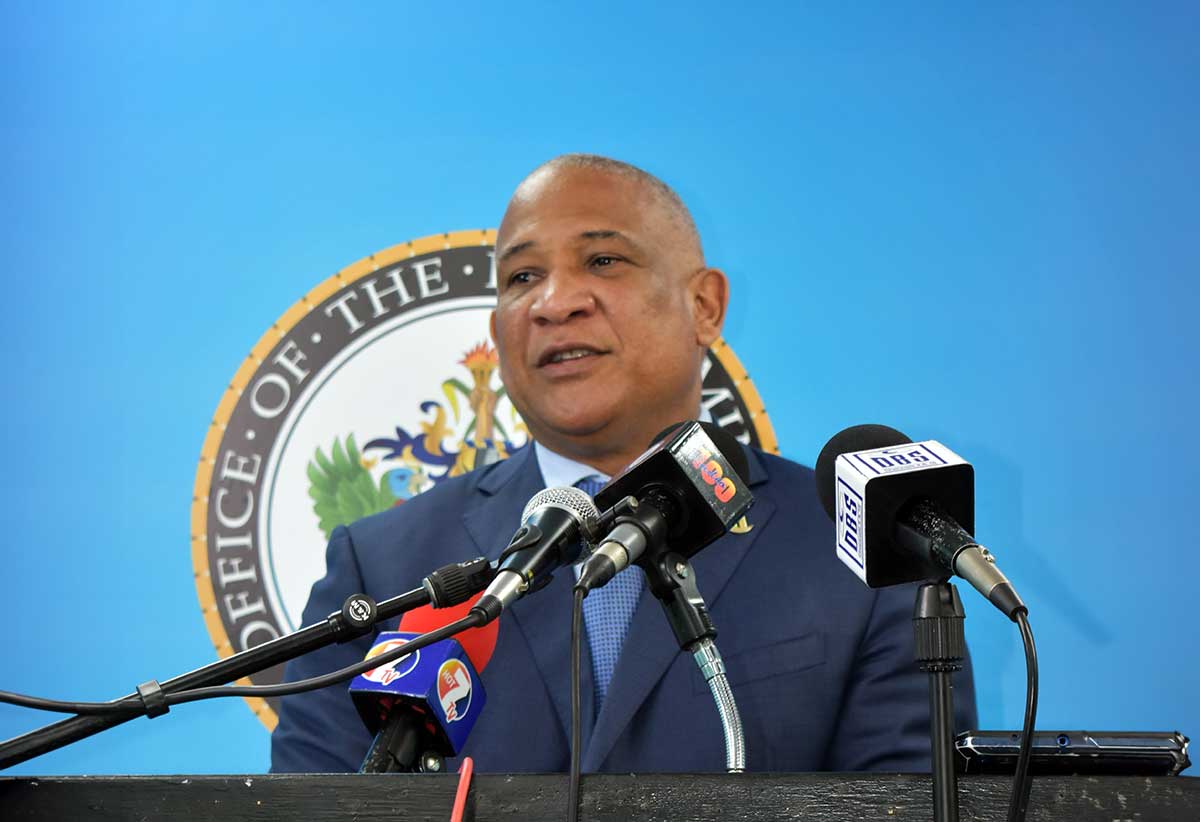
Deputy Prime Minister and Minister for Tourism, Information, Culture and Investment Dr. Ernest Hilaire has stated there is no authencity in the reports circulating, implicating Saint Lucia is in the visa waiver restrictions imposed on selected countries.
Last week, citing certain discrepancies with the Citizens by Investment Program- CIP procedure in some countries the UK government disclosed the suspension of the current visa-waiver agreement with Dominica. Dominica joins Cuba, the Dominican Republic, Haiti and Jamaica as the Caribbean countries whose passport holders need a visa to enter the UK.
Speaking to reporters, on Monday, Dr. Hilaire noted that the UK government has released no official document involving Saint Lucia in this latest visa requirements for travel to the UK.
“The official authority for issuing statements on behalf of countries are the countries’ legitimate authority …the British government issued a statement that clearly stated the actions against Dominica and why they chose to do so,” declared the Tourism Minister.
He said the statement did not include Saint Lucia, St Kitts/Nevis, Antigua or Grenada. Hilaire added: “The official source – the British Government said we are taking action against Dominica, here is why we’re doing it, we’ve raised concerns with them before about their CIP, we have told them about the effects of certain practices how it can affect our security, accordingly we’re acting in this way.”
Nonetheless, he said, someone circulated a story online from an “unknown source” claiming that “its Dominica first, then Saint Lucia in August and others (countries) in September, October …and everybody focuses not on what the official British government said, but focusing on an unknown article that someone has circulated.”
Dr. Hilaire asserted: “As far as we know …and we are in constant dialogue with all our international partners, there are no issues with our CIP that needs addressing now.
“Our CIP is reputed to have one of the best, if not the best due diligence process …we are in constant dialogue and if there is any concern, it is raised with us and we address it. We are in contact with the authorities, there is no issue that has not been brought before us if it relates to our CIP.”
He went on to say, “In fact, our CIP is doing better and is more recognized …only two weeks ago we had an international CIP Conference in Saint Lucia, beyond the passport …attended by 150 representatives from all over the world who came to see what Saint Lucia is about, because of what Saint Lucia is about and the work that we’re doing,”
However, the minister explained, “If any international partner raises any issue with us we will address it. At this point, there is nothing that has been flagged to us. We are still reviewing the CIP to make it even better …and we will be making announcements in the months to come, how we are streamlining our immigration process, how we are strengthening the due diligence process and how we are changing the CIP to make it more reflective of the market”.
To reinforce the point, Dr. Hilaire stated, “The CIP has been used and will be used as a tool to raise revenue for the development of our country and the advancement of our people. So, there is nothing that has been brought to us that has given us any concern, and certainly we have not been told by any authority…and as far as we know there are no issues with us.”
Referring to the submissions being bandied around, he said, “There is no authencity …so there are people out there just spreading talk”.
On July 19, UK Home Secretary Suella Braverman disclosed, the visa restriction was imposed on Dominica, Honduras, Namibia, Timor-Leste, and Vanuatu.
Braverman stated: “Careful consideration of Dominica’s and Vanuatu’s operation of a citizenship by investment scheme has shown clear and evident abuse of the scheme, including the granting of citizenship to individuals known to pose a risk to the UK”.
Hilaire explained that before approval for a CIP document is granted, Saint Lucia has to liaise with its international partners and consider issues raised by the partners. “In our programme, before we give approval we make sure that we consult all our international partners to give us their assessment,” he added. “The principle is, if any country (partner of ours) raises any concerns we will take it into account and make sure that we address it.”
He said that due to “global political changes …we adapt to it.”













